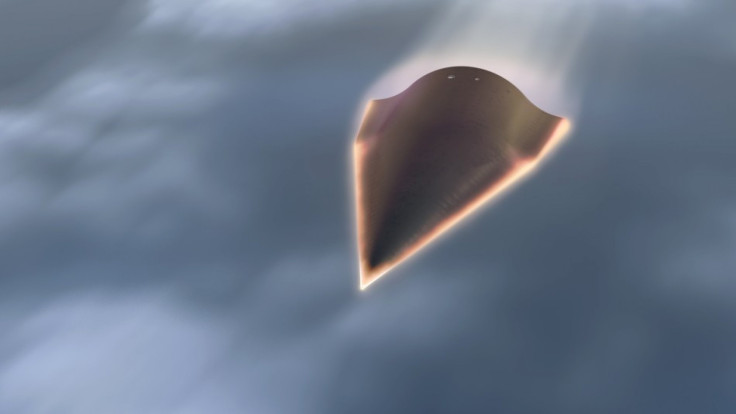DARPA to Test Hypersonic Aircraft That Can Fly New York to Los Angeles in 12 Minutes

The Defense Department will test its super-fast aircraft that can travel at a blistering speed of 13,000 mph, or twenty times faster than the speed of sound.
The Defense Research Projects Agency (DARPA) will test the arrow-shaped unmanned Falcon Hypersonic Technology Vehicle 2 (FTVH2) between 7 a.m. to 1 p.m. PDT on Thursday by an eight-story Minotaur IV rocket from Vandenberg Air Force Base, California. Originally the "Mach 20" aircraft was scheduled to be launched on Wednesday but the launch was delayed due to poor weather conditions.
The rocket will puncture the atmosphere and release FTVH2. Then the super-fast weapon will glide over the Pacific Ocean at nearly 20 times the speed of sound. The test flight will last 30 minutes before the FHTV2 hits the water and sinks near the Kwajalein Atoll, about 4,100 miles from the Vandenberg Air Force Base.
If everything goes as planned, Pentagon will be gifted with a lightning-fast vehicle capable of delivering a military strike anywhere in the world in less than an hour.
The test flight will also test the navigation control systems and carbon composite materials which are designed to withstand the extremely hot temperatures that the aircraft will go against.
The aircraft is fast enough to travel from New York to Los Angeles in just 12 minutes and it can withstand temperatures hotter than the melting point of steel! It also has the ability to send a missile to an identified target within an hour.
“We need to increase our technical knowledge to support future hypersonic technology development. We gained valuable data from the first flight, made some adjustments based on the findings of an engineering review board to improve this second flight, and now we’re ready to put all of that to the test,” said Dave Neyland, director of DARPA’s Tactical Technology Office.
HTV-2 is DARPA's second test flight after a few changes were made when the first attempt failed in April of 2010 and crashed into the ocean just nine minutes after takeoff. The craft was never recovered. A design flaw was suspected by engineers as the cause of the malfunction.
DARPA and Lockheed Martin Corp. built both FHTVs. If the test fails this time, DARPA will not be building another Falcon HTV and the project will be shelved indefinitely.
© Copyright IBTimes 2024. All rights reserved.





















